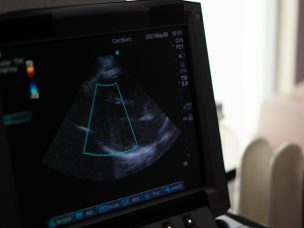July 27, 2023
Transthyretin Amyloid Cardiomyopathy in Preserved Ejection Fraction Heart Failure Patients
Medically reviewed by Dr. Shani S. Saks, D.O. on July 27, 2023 This study found that patients with higher transthyretin amyloid cardiomyopathy scores had different clinical and echocardiographic characteristics and higher cardiovascular risk. Heart failure patients with preserved ejection fraction may benefit from the transthyretin amyloid cardiomyopathy score’s moderate discriminatory performance and satisfactory calibration in...
Cardiac Amyloidosis Prevalence in Old Patients With Heart Failure
Medically reviewed by Dr. Shani S. Saks, D.O. on July 27, 2023 Cardiac amyloidosis is a common cause of heart failure and should be screened in elderly heart failure patients with myocardial thickening. Cardiac amyloidosis (CA) has emerged as an underdiagnosed cause of heart failure (HF) in recent years. The available studies on CA prevalence...
Diagnostic Value of Left Atrial Strain Imaging in Cardiac Amyloidosis
Medically reviewed by Dr. Shani S. Saks, D.O. on July 27, 2023 Left atrial function evaluated by speckle tracking echocardiography is significantly impaired in cardiac amyloidosis patients compared to hypertrophic cardiomyopathy patients and healthy controls. Left atrial (LA) function assessment is crucial for gauging left ventricular filling in various cardiovascular conditions. Cardiac amyloidosis (CA) causes...
Invasive and Non-Invasive Pathways for Diagnosing Cardiac Amyloidosis
Medically reviewed by Dr. Shani S. Saks, D.O. on July 27, 2023 Diagnosing cardiac amyloidosis (CA) can be difficult due to its nonspecific presentation and overlapping clinical features. Clinical suspicion, cardiac biomarkers, monoclonal protein assessment, echocardiography, cardiac magnetic resonance findings, and bone scintigraphy are important in the diagnostic algorithm. Non-invasive techniques are preferred, but tissue...



